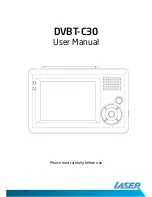
15
EN
Danger from fly-
ing sparks
Risks from mains
current and weld-
ing current
The relevant material safety data sheets and manufacturer's specifications for
the listed components should therefore be studied carefully.
Flammable vapours (e.g. solvent fumes) should be kept away from the arc's
radiation area.
Flying sparks may cause fires or explosions.
Never weld close to flammable materials.
Flammable materials must be at least 11 metres (36 ft. 1.07 in.) away from the
arc, or alternatively covered with an approved cover.
A suitable, tested fire extinguisher must be available and ready for use.
Sparks and pieces of hot metal may also get into adjacent areas through small
gaps or openings. Take appropriate precautions to prevent any danger of in-
jury or fire.
Welding must not be performed in areas that are subject to fire or explosion or
near sealed tanks, vessels or pipes unless these have been prepared in ac-
cordance with the relevant national and international standards.
Do not carry out welding on containers that are being or have been used to
store gases, propellants, mineral oils or similar products. Residues pose an
explosive hazard.
An electric shock is potentially life threatening and can be fatal.
Do not touch live parts either inside or outside the device.
During MIG/MAG welding and TIG welding, the welding wire, the wirespool,
the feed rollers and all pieces of metal that are in contact with the welding wire
are live.
Always set the wire-feed unit up on a sufficiently insulated surface or use a
suitable, insulated wirefeeder holder.
Make sure that you and others are protected with an adequately insulated, dry
temporary backing or cover for the earth or ground potential. This temporary
backing or cover must extend over the entire area between the body and the
earth or ground potential.
All cables and leads must be secured, undamaged, insulated and adequately
dimensioned. Loose connections, scorched, damaged or inadequately dimen-
sioned cables and leads must be repaired/replaced immediately.
Do not sling cables or leads around the body or parts of the body.
The electrode (rod electrode, tungsten electrode, welding wire, etc) must
-
never be immersed in liquid for cooling
-
never be touched when the power source is switched on.
Double the open circuit voltage of a power source can occur between the
welding electrodes of two power sources. Touching the potentials of both elec-
trodes at the same time may be fatal under certain circumstances.
Arrange for the mains cable to be checked regularly by a qualified electrician
to ensure the ground conductor is functioning properly.
The device must only be operated on a mains supply with a ground conductor
and a socket with a ground conductor contact.
Summary of Contents for MagicWave 2200 Comfort
Page 2: ...2...
Page 4: ...4...
Page 10: ...10...
Page 23: ...General information...
Page 24: ......
Page 27: ...Control elements and connections...
Page 28: ......
Page 39: ...Installation and commissioning...
Page 40: ......
Page 45: ...Welding...
Page 46: ......
Page 89: ...Setup settings...
Page 90: ......
Page 170: ...170...
Page 171: ...Troubleshooting and maintenance...
Page 172: ......
Page 183: ...183 EN Disposal Dispose of in accordance with the applicable national and local regulations...
Page 184: ...184...
Page 185: ...Appendix...
Page 186: ......
Page 195: ...Spare parts and circuit diagrams...
Page 196: ...196 Spare parts list TransTig MagicWave 2200 Comfort...
Page 197: ...197...
Page 198: ...198 Spare parts list TransTig MagicWave 2500 3000...
Page 200: ...200 Spare parts list TransTig 4000...
Page 201: ...201...
Page 202: ...202 Spare parts list MagicWave 4000...
Page 203: ...203...
Page 204: ...204...
Page 205: ...205 Circuit diagrams MagicWave 2200 Comfort V 12 06 2014...
Page 206: ...206 Circuit diagrams MagicWave 2500 Comfort...
Page 207: ...207 Circuit diagrams MagicWave 3000 Comfort...
Page 208: ...208 Circuit diagrams MagicWave 4000 Comfort V 17 12 2012 1 2...
Page 209: ...209 V 17 12 2012 2 2...
Page 210: ...210 Circuit diagrams TransTig 2200 Comfort V 14 12 2010...
Page 211: ...211 Circuit diagrams TransTig 2500 Comfort...
Page 212: ...212 Circuit diagrams TransTig 3000 Comfort...
Page 213: ...213 Circuit diagrams TransTig 4000 Comfort V 17 12 2012...
Page 214: ......
Page 215: ......
















































